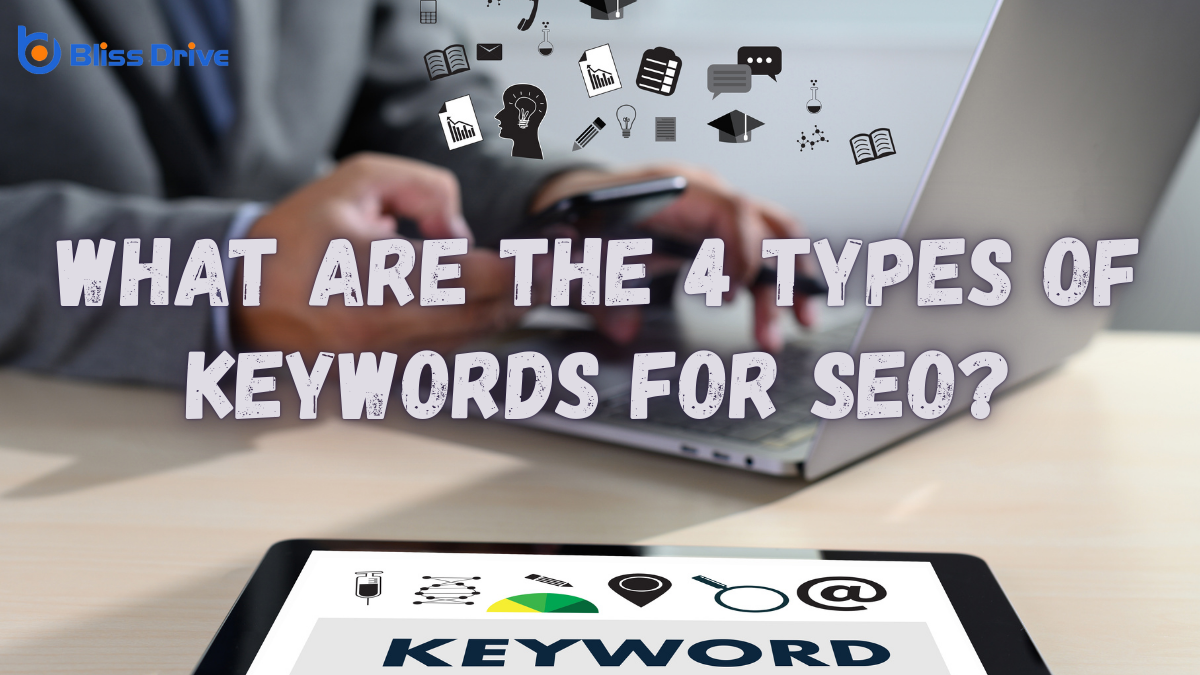Learn More About Us

In the world of SEO, understanding the four types of keywordsWords or phrases that users type into search engines to find information. is essential for optimizing our content effectively. We have short-tail, long-tail, LSI, and intent-based keywords, each serving a unique purpose. Short-tail keywords are broad, while long-tail ones are more specific. LSI keywords add context, and intent-based keywords align with user needs. Let’s explore how these can enhance our strategy and boost engagementThe interactions that users have with a brand’s content on social media..
When we plunge into the world of SEO, short-tail keywords are often our starting point. These keywords, usually one to three words long, are broad and highly competitive. We use them to capture a large audience's attention because they reflect common and general search queries. For instance, words like "shoes" or "laptops" are short-tail keywords.
Their broad nature means they drive a lot of search traffic, but they also come with challenges. We face steep competition because many websites target these popular terms.
It’s essential that we balance their use with more specific strategies to maintain effectiveness. While they mightn't guarantee immediate conversions, short-tail keywords play a significant role in building awareness and attracting diverse visitors to our site.

While short-tail keywords cast a wide net, long-tail keywords offerThe specific product or service being promoted by affiliates. precision and focus.
They're more specific, usually containing three or more words, and target niche markets.
We find that they help us connect with users who've clear intent, often leading to higher conversion rates.
When someone searches for "best vegan chocolate chip cookies recipe," they're likely ready to bake, not just browsing.
Latent Semantic Indexing (LSI)A method search engines use to analyze relationships between words and concepts in content. keywords enhance our SEO strategy by ensuring content relevance and depth. They help search engines understand the context of our content, making it easier for users to find what they're looking for.
LSI keywords are related terms that naturally appear alongside our primary keywords. By incorporating them, we provide a more thorough and meaningful experience for our audience.
For instance, if our primary keyword is "apple," LSI keywords might include "fruit," "orchard," or "nutrition." These terms clarify content context, reducing ambiguity.
As we carefully integrate these words, we signal to search engines that our content is well-rounded and authoritative. This approach not only boosts rankings but also enriches user engagement by presenting valuable, contextually relevant information.
Understanding user intent is essential in selecting the right intent-based keywords for our SEO strategy. These keywords help us align our content with what users are truly searching for, ensuring we meet their needs effectively.
Intent-based keywords fall into three categories: informational, navigational, and transactional.
Informational keywords target users seeking knowledge. They often begin with "how," "why," or "what."
Navigational keywords are used when users want to find a specific website or brand.
Transactional keywords indicate a user's intent to purchase or engage in a conversion action, often including terms like "buy," "discount," or "deal."
In our journey through SEO keywords, we've explored how short-tail keywords capture broad audiences, while long-tail keywords target niche markets with higher conversion rates. We've seen how LSI keywords add context and enhance relevance, making content more engaging. Finally, intent-based keywords align our content with users' specific needs, whether informational, navigational, or transactional. By integrating these four types of keywords, we're equipped to boost search rankings and foster better user engagement. Let's optimize wisely!
